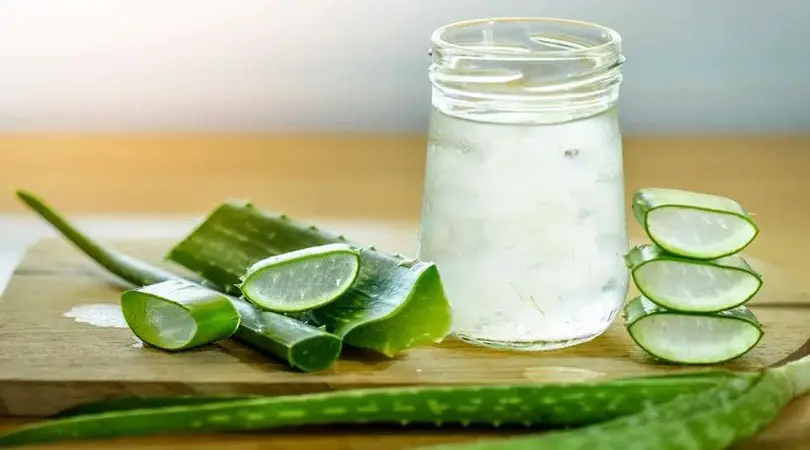Last Updated on January 6, 2025
Yes, string cheese is a safe and healthy snack option for pregnant women. String cheese is a good source of protein and calcium, which are essential nutrients for a healthy pregnancy.
It is also a convenient and portable snack option that can be easily included in a balanced diet. However, it is important to consume only pasteurized cheese to avoid the risk of foodborne illnesses. Soft cheeses, including brie, feta, and blue cheese, should be avoided during pregnancy. In this article, we will discuss the benefits of string cheese during pregnancy and provide tips for safely incorporating it into your diet.

Credit: food.unl.edu
Related: Can I Eat Taco Bell While Pregnant?
Health Benefits Of Cheese During Pregnancy
Can i eat string cheese while pregnant?
Pregnancy is the time when women are most cautious about their food habits as they want to nourish their body and the growing baby with all the adequate nutrients. Cheese is a food item that most women love, but they are often curious about whether they can eat it or not.
In this article, we will answer the question – can i eat string cheese while pregnant? Additionally, we’ll also dive into the health benefits of cheese, especially during pregnancy.
Nutritional Value Of Cheese
Cheese is a great source of many essential nutrients that play a vital role in pregnancy.
- Cheese is a rich source of calcium, protein, and phosphorus, making it one of the most nutrient-dense foods.
- It contains essential vitamins like vitamin a, vitamin d, and vitamin b12.
- Cheese is also a good source of zinc and selenium, which are essential for the proper functioning of the immune system.
Importance Of Calcium In Pregnancy
Calcium is a crucial nutrient that is required for healthy bones and teeth in the fetus. It also helps in the proper functioning of muscles and nerves in the mother’s body. Cheese is an excellent source of calcium, and pregnant women should regularly consume it to meet their daily calcium requirements.
- Cheese is rich in calcium, which helps in the development of the baby’s bones and teeth.
- Adequate calcium intake during pregnancy also helps in reducing the risk of preeclampsia, a condition that can lead to high blood pressure and other complications during pregnancy.
- Cheese also contains phosphorus, which helps in the absorption and utilization of calcium in the body.
Overall, cheese is a highly nutritious food item that provides numerous health benefits during pregnancy. However, it is recommended that pregnant women consume pasteurized cheese to minimize the risk of food-borne illnesses.
Pregnant women can eat string cheese during pregnancy if it is made from pasteurized milk. Cheese is an excellent source of essential nutrients, including calcium and protein, that are necessary for the healthy development of the baby. So, if you love cheese, then make sure to incorporate it into your pregnancy diet and enjoy its many benefits!
Risks Associated With Eating String Cheese During Pregnancy
Pregnancy can be both a beautiful journey and a challenging one. Everyone wants to ensure that they and their baby stay healthy throughout this period. One common question that many pregnant women have is whether or not it is safe to eat string cheese while pregnant.
In this section, we’ll look at the potential risks associated with consuming string cheese during pregnancy and some precautions you can take to stay healthy.
Listeria Contamination In Cheese
Listeria is a type of bacteria that can be found in some types of cheese, including string cheese. It’s important to note that although listeria affects some people, it can be especially dangerous for pregnant women and their babies.
- Listeria can cause miscarriages, preterm labor, and stillbirth if contracted during pregnancy.
- Pregnant women are more likely to develop listeriosis, an infection caused by listeria, than non-pregnant individuals.
- String cheese is considered high risk for listeria contamination due to its production process, which can facilitate bacterial growth if not handled properly.
Precautions To Take While Consuming Cheese
Despite the potential risks associated with listeria contamination in cheese, pregnant women can still enjoy safe and healthy string cheese consumption.
- Always check the label of the string cheese to ensure that it’s made with pasteurized milk. Pasteurization kills harmful bacteria so that they don’t enter your system.
- Keep your cheese refrigerated. This will prevent bacterial growth and reduce the risk of contamination.
- If you notice any mold on your cheese, do not consume it. Mold can be a sign of bacterial growth and can lead to infection.
- Wash your hands thoroughly before and after handling cheese to prevent the transfer of bacteria.
By following these precautions, you can safely enjoy string cheese while pregnant without putting yourself or your baby at risk.
Pregnant women can consume string cheese; however, it’s essential to be aware of the potential risks and take necessary precautions. Remember to always check the label, refrigerate properly, avoid moldy cheese, and practice good hand hygiene. With these practices in place, you can safely enjoy string cheese while pregnant.
Related: Can I Eat Vienna Sausages While Pregnant?
Types Of Cheese Safe To Eat During Pregnancy
Can I Eat String Cheese While Pregnant?
Cheese is undoubtedly a delicious and versatile food in many households, but can it be enjoyed safely during pregnancy? Many women often wonder if they can eat string cheese while pregnant. The answer is yes! String cheese is generally safe to consume during pregnancy, but there are a few factors you should keep in mind to ensure you are consuming cheese safely.
Hard Cheeses
Hard cheeses are a staple in many diets and, thankfully, are also considered safe to eat during pregnancy. Hard cheeses are typically low in moisture, which limits the growth of bacteria, and they also have a more extended aging process, making them safer to consume.
Here are some examples of hard cheeses safe to consume during pregnancy:
- Cheddar
- Swiss
- Parmesan
- Gouda
Pasteurized Cheese
Expecting mothers should always consume pasteurized cheese to minimize the risk of foodborne illnesses. Unpasteurized cheeses like brie, roquefort, and camembert can contain harmful bacteria such as listeria monocytogenes and cause severe illness or even harm your unborn child.
Examples of pasteurized cheese safe to eat during pregnancy include:
- Cottage cheese
- Cream cheese
- Mozzarella
- Feta (only if it’s made with pasteurized milk)
Low-Fat Cheeses
Pregnant women should keep track of their fat intake but still try to include cheese in their diet as an excellent source of calcium and protein. Low-fat cheeses are a perfect option during pregnancy because they are often lower in calories and saturated fat, making them a healthier option without sacrificing nutritional value.
Here are some examples of low-fat cheeses safe to consume during pregnancy:
- Goat cheese
- Ricotta cheese
- String cheese
- Queso blanco
Pregnant women can safely consume cheese during pregnancy with the proper precautions. Prioritizing pasteurized cheese, hard cheeses, and low-fat cheese ensures that your baby is safe and healthy. Keep these tips in mind when selecting cheese during pregnancy, and you’ll feel confident that you are consuming this delicious food safely.
Related: Can You Have A Colonoscopy While Pregnant?
Frequently Asked Questions For Can I Eat String Cheese While Pregnant?
Is It Safe To Eat String Cheese While Pregnant?
Yes, string cheese is generally considered safe to eat during pregnancy.
Can Eating String Cheese During Pregnancy Harm My Baby?
No, there is no evidence to suggest that eating string cheese during pregnancy will harm your baby.
Are There Any Benefits To Eating String Cheese During Pregnancy?
Yes, string cheese is a good source of calcium and protein which are important for both the mother and baby’s health.
Are There Any Precautions I Should Take While Eating String Cheese During Pregnancy?
Yes, make sure to always check the expiration date and avoid consuming if it has gone bad. Also, make sure to wash your hands before handling the cheese to reduce the risk of contamination.
Conclusion
Considering the benefits and risks of consuming string cheese while pregnant, it’s safe to say that it is a healthy and nutritious snack option for expectant mothers. The high protein and calcium content of string cheese can help support a healthy pregnancy and fetal development.
However, it’s important to be mindful of the sodium content and choose low-sodium options. Additionally, it’s crucial to store and handle the cheese properly to minimize the risk of contracting a foodborne illness. As with any food during pregnancy, moderation is key, and it’s best to consult with a healthcare provider before making any significant dietary changes.
As a precaution, pregnant women should always err on the side of caution and choose foods that are known to be safe during pregnancy. Nonetheless, enjoying string cheese in moderation as part of a well-balanced diet can undoubtedly promote a healthy pregnancy.











